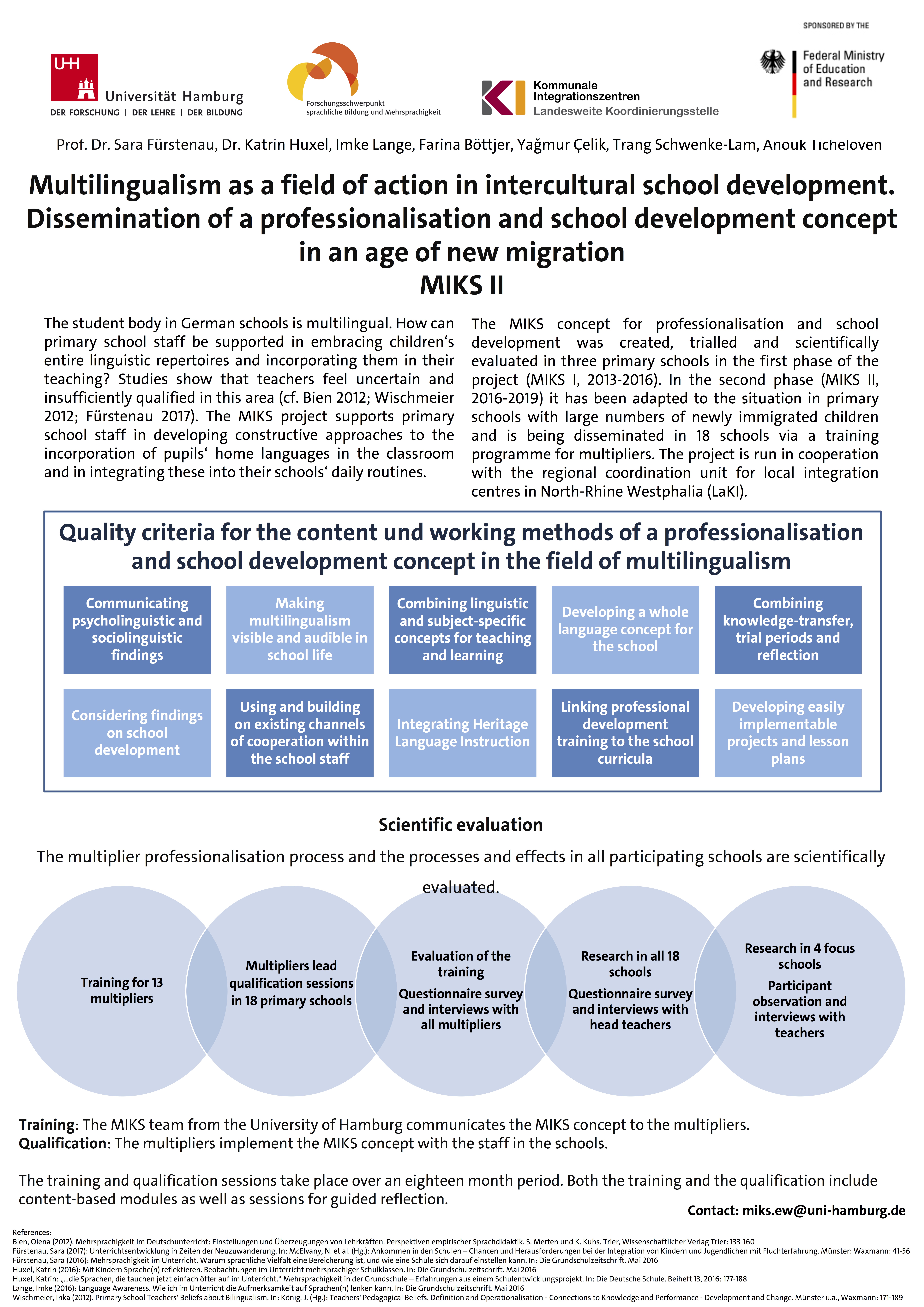Multilingualism as a field of action in intercultural school development (MIKS)
Multilingualism in the secondary school classroom (MIKS III)
Transfer of the MIKS concept to schools in Hamburg
Duration: January 2020 - December 2021
The transfer of the MIKS concept comprises two areas: (I) adaptation of the MIKS concept for the work with secondary schools, (II) transfer from university to secondary schools in Hamburg.
This is carried out in cooperation with schools that are interested and develop structures to use the multilingualism of students in their field of activity productively as a resource for language education and learning in school. Further, the schools develop and test their own practical projects. For this purpose, the MIKS concept will be further developed jointly with the schools on a scientific basis and adapted to the Hamburg school structure.
The central characteristics that have proven to be relevant in the scientific monitoring will be preserved. Based on the knowledge that innovation is most likely to take place where everyone involved has new and good experiences with multilingualism at school and in class, the expertise from the MIKS project is to be transferred to other types of schools.

